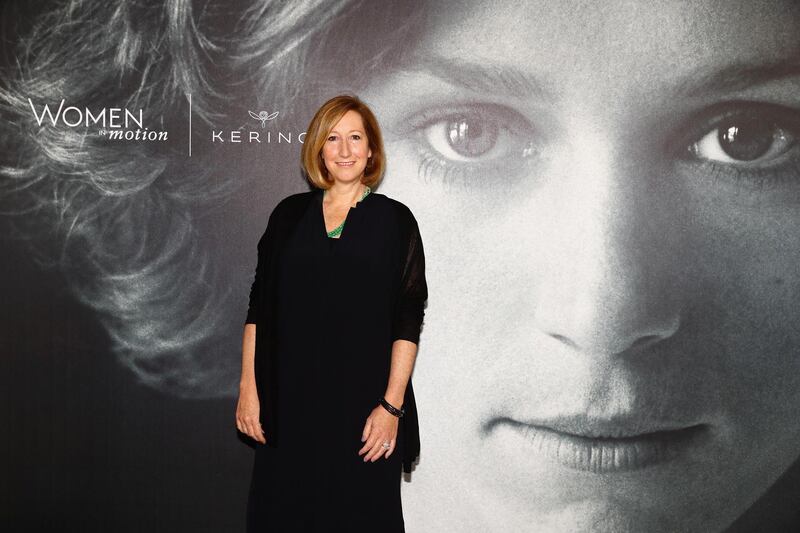Could the Gulf become home to an international edition of the renowned Sundance Film Festival? The festival already runs international events in Hong Kong and London, as well as Sundance Labs all over the world – including a Screenwriting Lab in Amman and a Theatre Lab in Marrakech – and with plans to extend the international festivals further afield, the Middle East is very much in the reckoning, says Sundance Institute's executive director Keri Putnam.
“We want to bring public events to the world to showcase the work we curate, but also to take part in an exchange,” she says. “We already have a festival in Hong Kong; we’ve been in London five years now; and in concert with the Lab programmes, we already run in many regions – we’ll continue to have public events in other regions, including the Middle East and North Africa.”
Putnam adds that we shouldn't get too excited just yet, though – the next Sundance international festival isn't confirmed. "There are no definitive plans for where the next region will be, and I should point out that we do our regional events with partners, and they're smaller, four-day events – we don't just move the Sundance fest to another region, we wouldn't have capacity," she cautions. "The key is to find the right partners and the right region that we can bring our curatorial work to, but also to be able to showcase works from that region and make the Sundance Festival unique to that region."
Putnam was in Abu Dhabi attending the CultureSummit, and that theme of exchange is clearly something she feels is crucial, both at her own events and events such as the CultureSummit. "It's absolutely critical," she says. "If we can understand each other through stories that we tell as individuals, rather than through a polarising media or in a commercial context; if we can create frameworks where we can hear one another's stories more authentically and give space to have real dialogue, that's what's going to allow us to get past the superficial divisions that prevent us from listening to one another."
Sundance itself is very much about giving a voice to the unheard, and even though it is now the world's most successful independent film festival and market, achieving a perfect blend of critical and commercial success, Putnam insists that, as a non-profit organisation, the Sundance Institute is all about the creativity, not the commercial success that has sprung up around it. "Well, look, the main way to get a film seen is by having some sort of distributor relationship, of course, but we don't judge the work from our festival or labs on what those market outcomes are, we just try to offer the best curation we can and the best collection of artists we can," she says.
For Putnam, Sundance is all about getting unknown films seen in the first place. If bigger audiences come as a result, that is simply a bonus, she insists. "I see giving a platform to that non-commercial work as vital to our non-profit mission, because if storytelling isn't received by an audience, then what's it for? Being able to be that conduit between independent artists and a curious marketplace that wants to find new work from voices they haven't heard about, that's what our curation is about and that's what we take a lot of pride in," she says. "Of course it's great if work from Sundance finds its way to a wider audience, too, but that's not our focus and we'd never try and push an artist towards a certain distributor or platform. The media focuses on the big acquisitions that take place at Sundance, but we're really all about the community and the artists."
And that's what brings Putnam to Abu Dhabi – seeking new artists, new communities, perspectives and voices, and that all-important exchange. "It's been a great few days," she says. "I've met people from about 80 countries, which is a great experience, and I've had some great conversations," she says. "It's good to be able to lift out of the myopic context of whatever country or position or organisation you come from. Being at an event with people from really different contexts, and sit across a table and have a conversation, is a great position to be in."
Putnam cites gender issues as one particular area where her horizons have been broadened during her time in Abu Dhabi, and she hopes she can take home some useful lessons. "The way the gender debate is playing out in the US in film and media, that's very important to me, and something we work on a lot, but it's very different for women in Africa or the Middle East – I'm going to take home an eye-opening awareness of how gender plays for women in those regions, and that's important," she says. "I'm definitely going back with a very different awareness."
_______________________
Read more:
[ Can Rampage break the streak of video game adaptation duds? ]
From the wilderness to the mountaintop: man behind myth of Martin Luther King
[ The stars of Netflix's reboot 'Lost in Space' discuss the new show ]
_______________________





